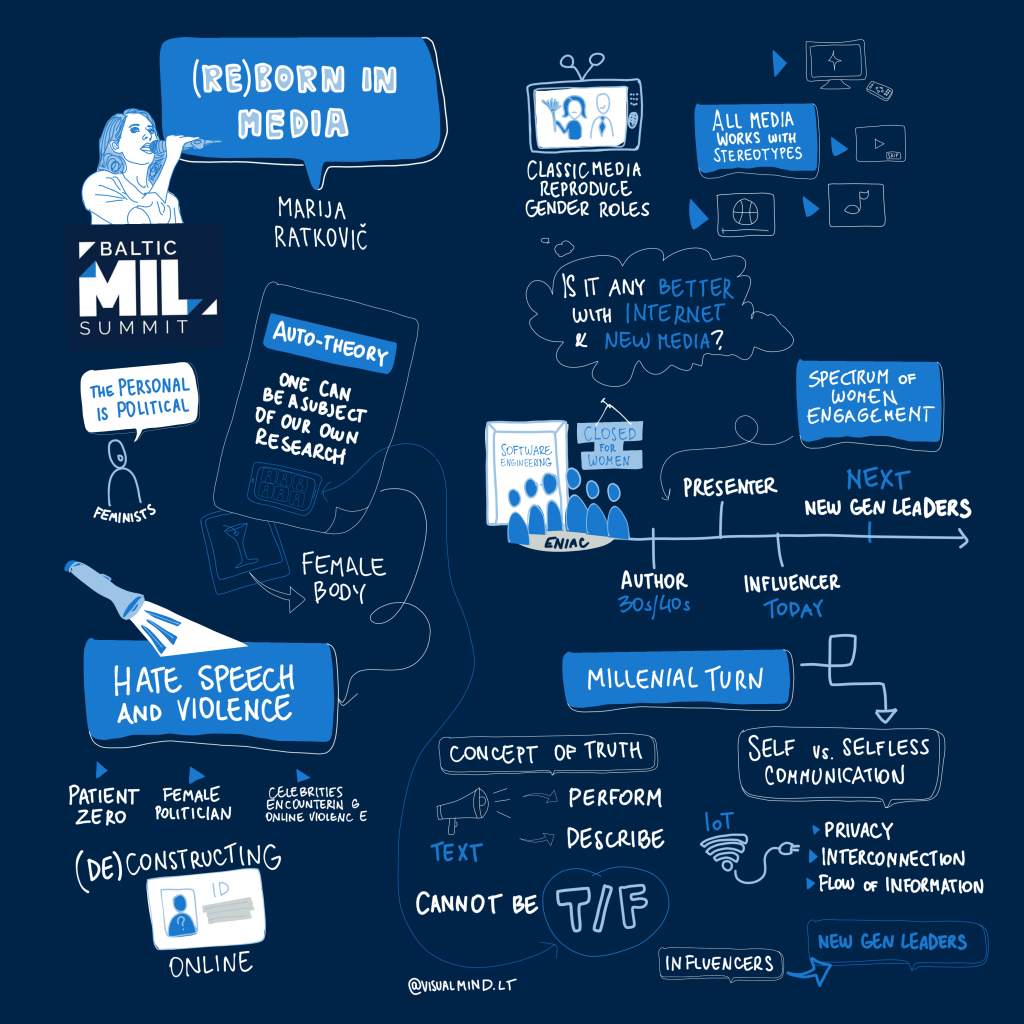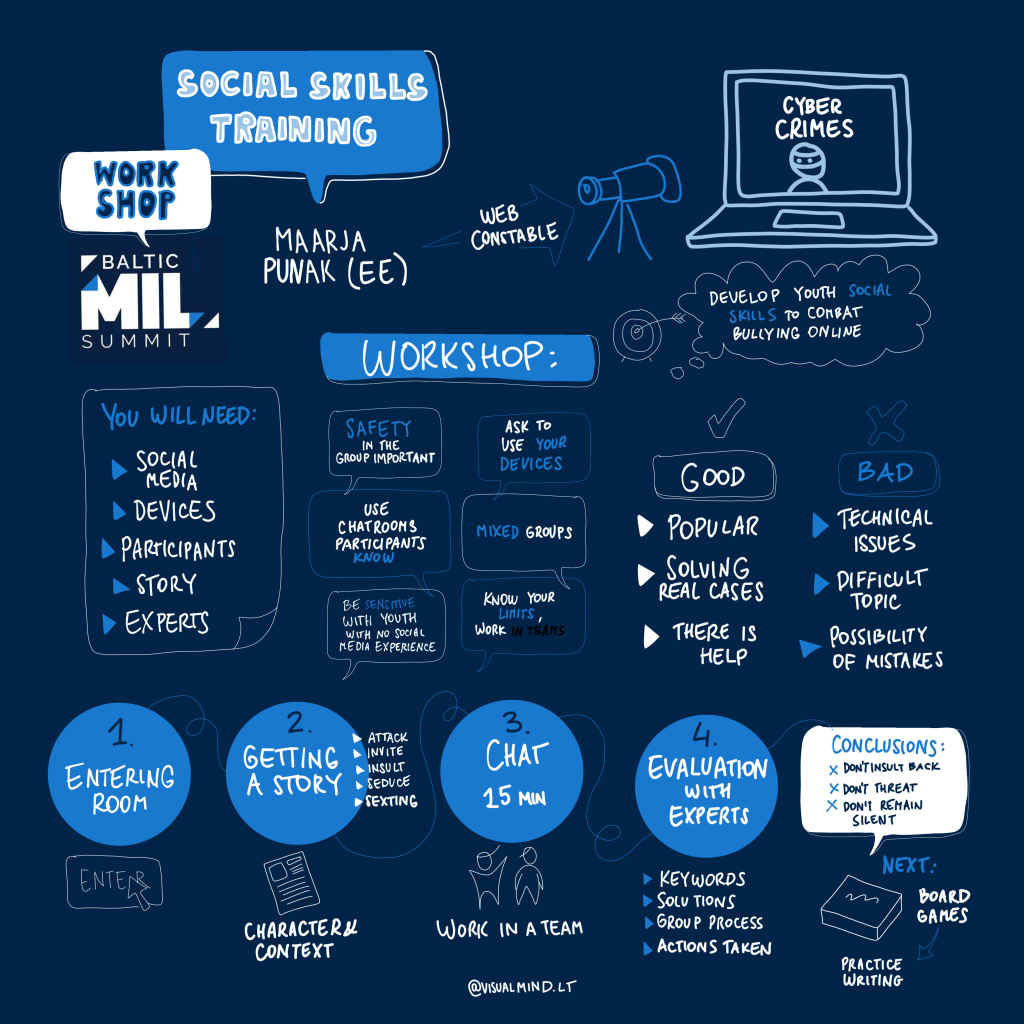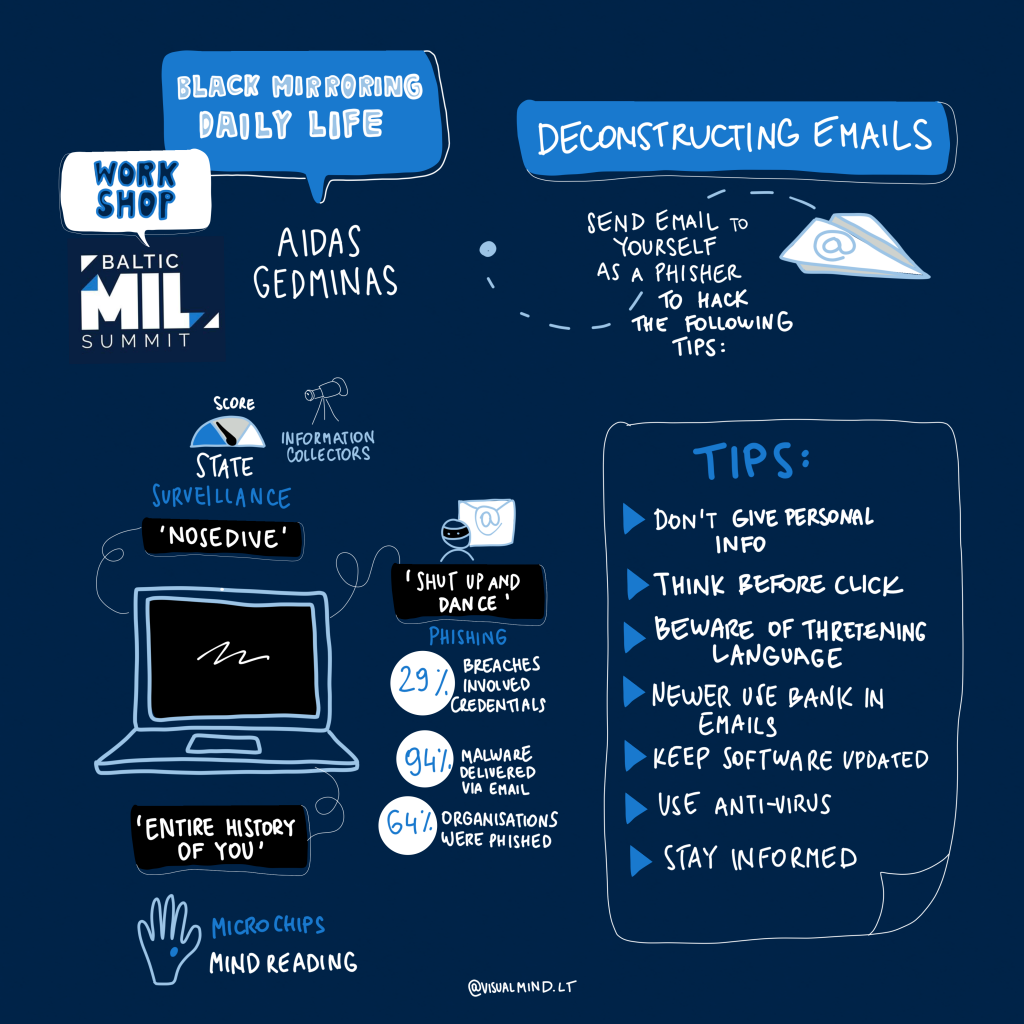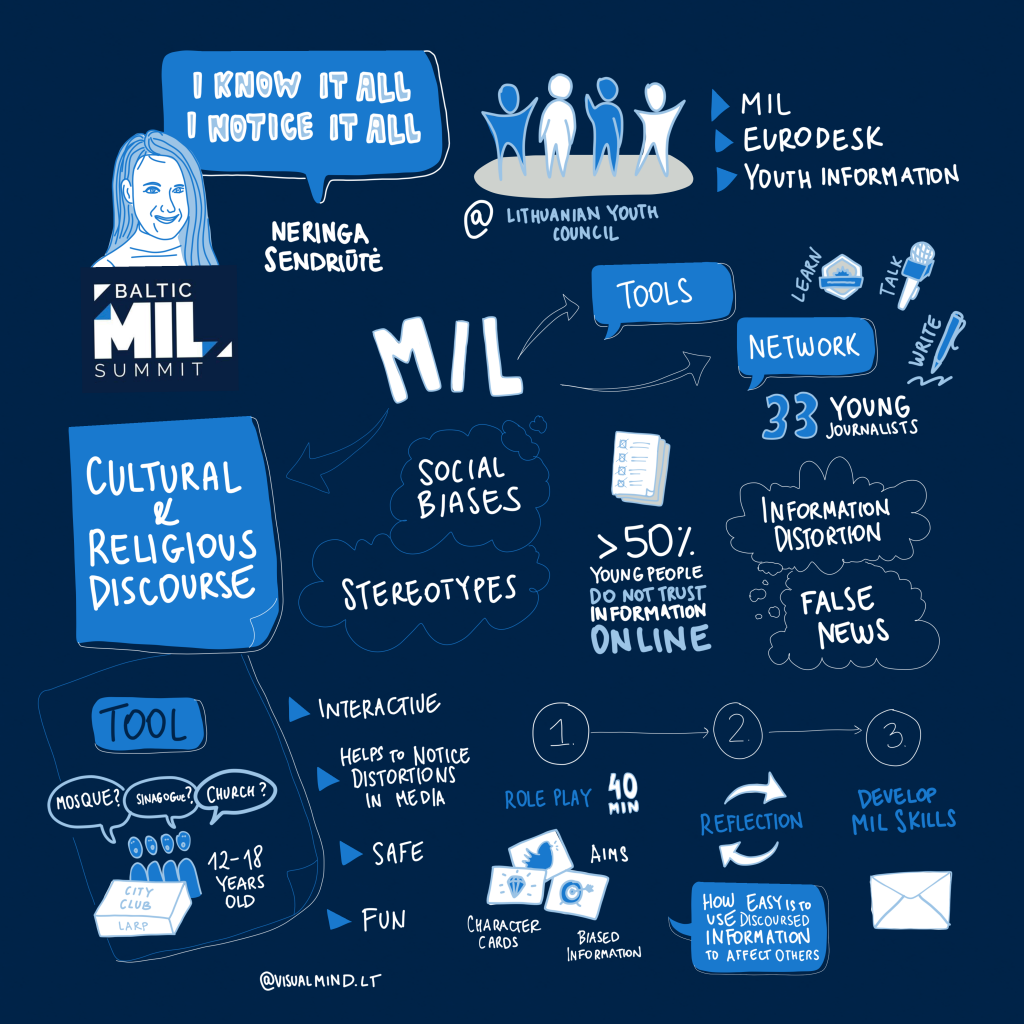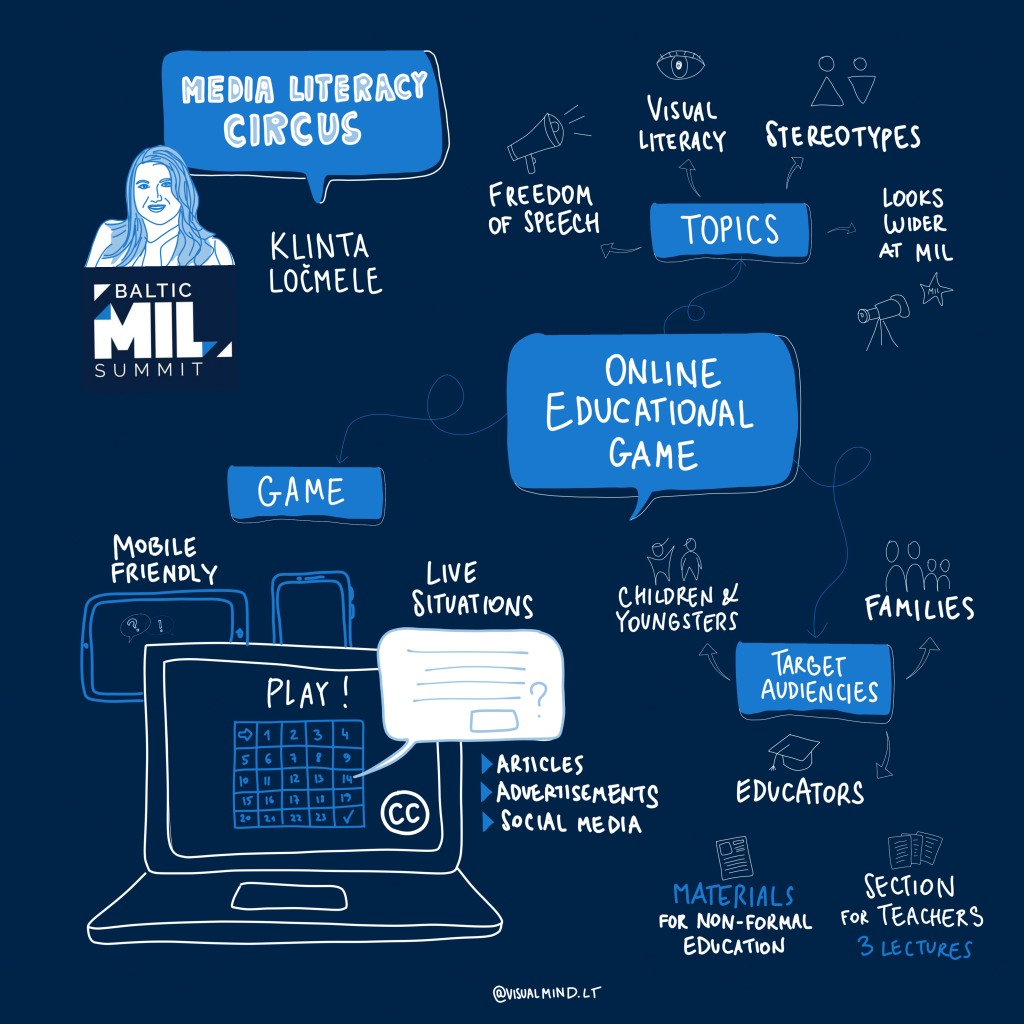Baltic MIL Summit: The Dark Side of Media and Information Literacy
First time held Baltic MIL summit attracted more than 100 media and information literacy professionals and practitioners from Estonia, Latvia and Lithuania.
During two event days journalists, teachers, youth workers, NGO activists and civil servants have discussed many burning issues related to MIL education in Baltics. Participants were welcomed by His Excellence Matthias Sonn, German Ambassador to Lithuania, Mr Tomas Daukantas, Chancellor of Lithuanian Ministry of Education, Science and Sport , Natascha Schwanke, who is the Director of Media Development at DW Akademie and Evaldas Rupkus, who is the Project Officer at DW Akademie.
This year topic was Dark side of media and information literacy. Thus, conference activities were focused more on those MIL aspects, which are covered less frequently in other MIL related events. Further information from each summit session will be provided.
Marija Ratković, a Media Theorist and chief executive of the Centre for Biopolitical Education in Serbia delivered keynote presentation in the summit. Her topic was (Re)Born in Media: New Horizons of Media Literacy and Identity in Digital Environment.
She opened her presentation with the message that personal is political. Further, she stated that even though traditional media reproduce gender roles, it is unlikely that the situation is better with “new” media. During the presentation, she shared her personal experience of being bullied because of her digital identities. The presentation ended with some brighter thoughts that there are way more woman influencers these days. Also, there is a wave of new generation women politicians who creates a different culture. Yet, there is much to be done.
Afterwards, three parallel workshops were held.
“Populist” – Critical Thinking Board Game by Rasmuss Geks, Quo Tu doma? The presenter from Latvia shared their created game which focuses on exposing logical fallacies. The game structure integrates two main concepts: the concept of argumentation and social deduction.
Social skills training in social media by Maarja Punak, Estonian Police and Border Guard Board. During the workshop, Maarja explained what Estonian “web police” actually does and shared their experience with organising practical workshops for students. She stressed the importance of safety in the learning group, using chatrooms (applications) participants are familiar with in order to avoid distraction from technology and the importance of being sensitive for different student needs and experiences.
“Black Mirroring Daily Life” by Aidas Gedminas, Digital Security and Safety Trainer. In the workshop, Aidas did few practical activities with participants and shared many tips on personal safety internet among which were: don’t give personal information to anyone; think before click; beware of threatening language; never share bank information in the emails; keep software updated; use antivirus and stay informed.
The first day ended with a roundtable discussion How can we strengthen cooperation between Baltics on MIL education? Speakers Meelika Hirmo from Estonia, a Coordinator at SALTO Participation and Information Resource Centre, Mindaugas Grigaitis from Lithuania, a lecturer of Vilnius University and also literature teacher in Kaunas Jesuit Gymnasium, Nadine Gogu from Moldova, an executive director of Independent Journalism Center and Kristers Pļešakovs who is the head of Media Policy Division at Latvian Ministry of Culture.
Speakers stressed the need for the development of competencies for youth workers and by doing so, the need to seek partnerships and expertise from outside. They also mentioned how important it is to involve teachers through organizing events and developing competencies. In their opinion state institutions should contribute more (financially as well).
In the BarCamp, participants selected six topics which were discussed in depth in smaller groups. Those topics included online games for MIL, Media literacy in Baltic Universities, Global and local film practices and cross-cultural competency, Civic MIL as a common topic for Baltic MIL networking, Participation Resource Pool, Media literacy curriculum for youth trainers in the Baltics.
Here you can find graphic facilitation material from each BarCamp session and also short minutes which contains main ideas discussed in each session and also useful links.


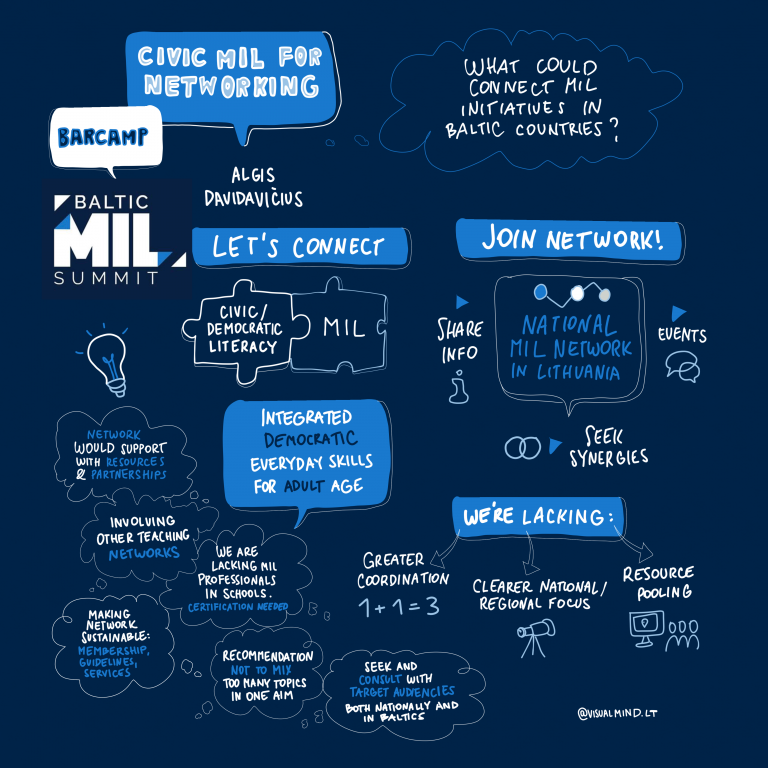
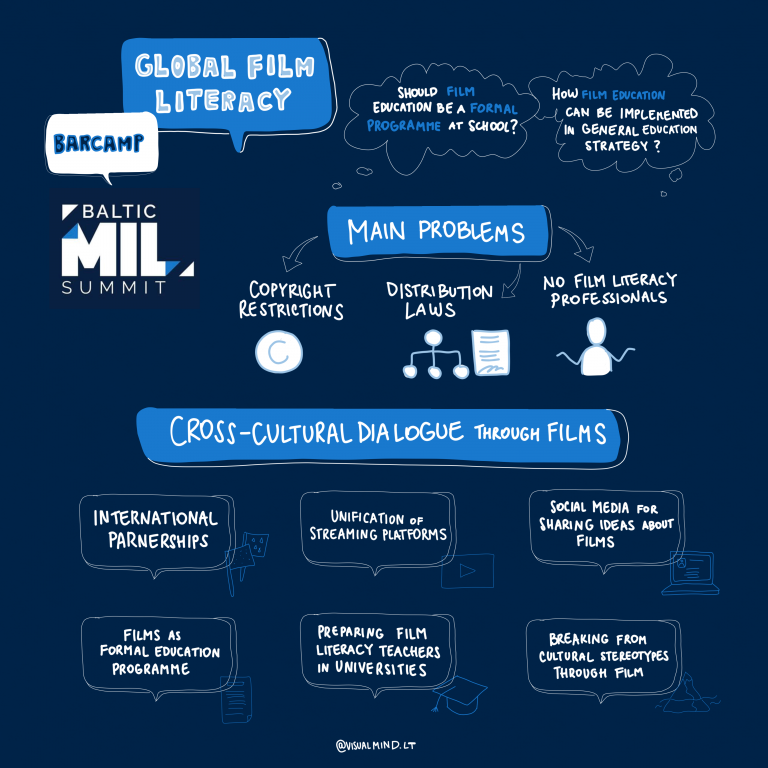
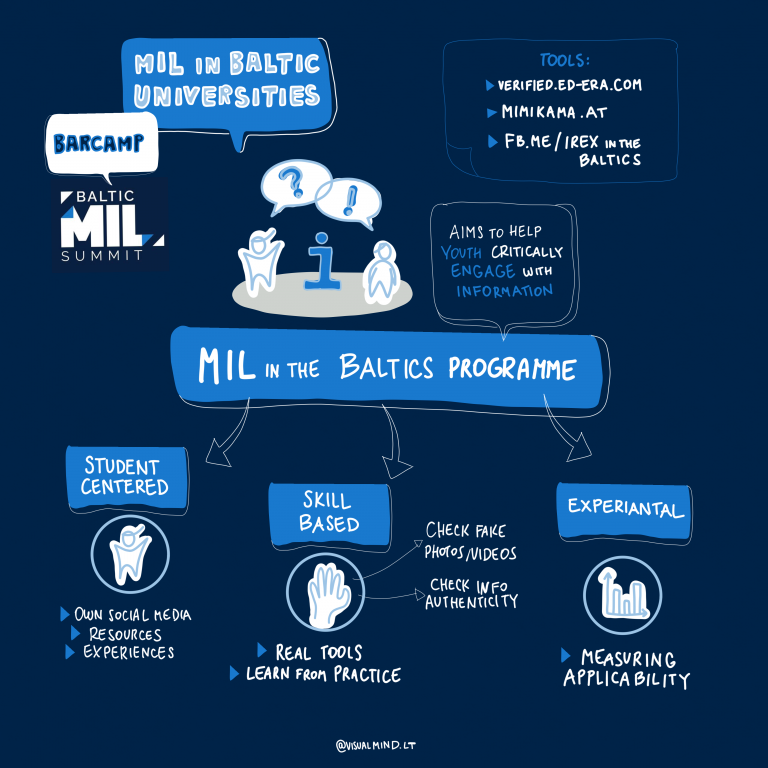
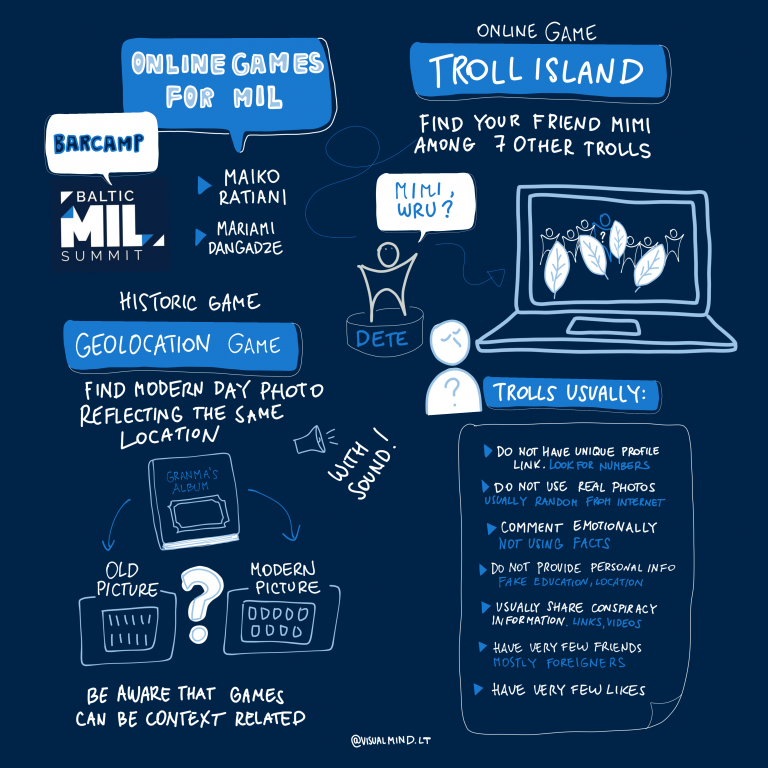
The conference was closed by Knowledge Economy Forum executive director who expressed the belief that this Baltic MIL summit does not end here. That actually it is a new beginning for further cooperation among different stakeholders nationally and across Baltics and that such Baltic MIL summit will become a traditional event held each year.
The Summit was organised by Knowledge Economy Forum and DW Akademie and is funded by the Foreign Office of the Federal Republic of Germany.
